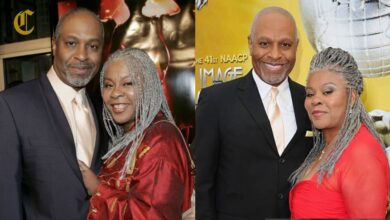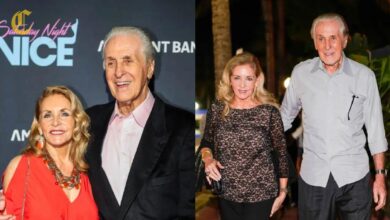How Hugo Bachega’s Accent Shapes His International Reporting

In the world of global journalism, a reporter’s voice often becomes their signature. Audiences may forget names, but they remember tone, clarity, and authenticity. For Hugo Bachega, an internationally recognized BBC News correspondent, his accent plays a key role in defining his professional identity.
With his unmistakable blend of Brazilian warmth and British precision, Bachega’s speech embodies modern journalism — diverse, empathetic, and globally accessible. His accent not only communicates information but also builds trust with viewers across continents. Whether reporting from the Middle East, Europe, or Latin America, Hugo Bachega’s clear diction and confident delivery make complex global issues understandable to millions.
This article explores how Hugo Bachega’s accent shapes his international reporting, examining how his voice influences audience perception, credibility, and the inclusive evolution of modern media.
Quick Bio Chart:
| Category | Details |
|---|---|
| Full Name | Hugo Bachega |
| Profession | International Correspondent |
| Network | BBC News |
| Nationality | Brazilian |
| Languages | English, Portuguese, Spanish |
| Reporting Focus | Global affairs, conflict zones, human interest stories |
| Education | Journalism and Communication |
| Known For | Clear accent, professional tone, global perspective |
| Base | London, United Kingdom |
The Origins of Hugo Bachega’s Accent
Hugo Bachega was born and raised in Brazil, where his exposure to multiple languages began early. As English gained prominence in global media and education, he mastered it alongside his native Portuguese. Later, his professional journey led him to the United Kingdom, where he joined the BBC — one of the world’s most respected news organizations.
This cross-cultural experience shaped his distinctive accent. It combines the rhythmic softness of Brazilian Portuguese with the refined enunciation of British English. The result is a hybrid accent that feels warm yet authoritative — perfectly suited for international audiences.
Accent Characteristics
- Subtle Brazilian inflection adding rhythm and warmth.
- British-style pronunciation ensuring clarity and neutrality.
- Globally intelligible tone that avoids regional extremes.
This unique blend allows Bachega to maintain a global English identity, representing both his roots and his professional environment.
The Role of Accent in Global Journalism
In international news, accent is far more than a linguistic feature — it’s a tool of communication, credibility, and connection. For correspondents like Hugo Bachega, every word must carry clarity, especially when covering urgent or sensitive events.
Key Roles of Accent in Journalism
- Clarity: Ensures global audiences understand reports, regardless of native language.
- Credibility: Neutral and articulate accents foster trust and professionalism.
- Relatability: Familiar tones create comfort among diverse listeners.
- Representation: Showcases diversity in global newsrooms.
Hugo Bachega’s accent reflects this balance. It resonates across regions — neither too formal nor too casual, striking the perfect tone between empathy and authority.
Credibility Through Clarity
For journalists, credibility stems not only from facts but also from how those facts are delivered. A clear accent ensures messages transcend cultural and linguistic barriers.
Hugo Bachega’s accent is carefully modulated: his pronunciation is crisp, his pacing steady, and his tone calm — even when reporting from conflict zones or disaster areas. These traits communicate confidence, composure, and compassion, earning him respect from both colleagues and viewers.
Why His Accent Enhances Credibility
- Neutrality: Avoids strong regional influence, appealing to global audiences.
- Control: Measured pacing reflects professionalism and accuracy.
- Trust: Listeners associate clarity with reliability.
When reporting from war zones like Kyiv or humanitarian crises in Lebanon, his voice becomes a steady guide through chaos, helping audiences process complex realities without sensationalism.
Bridging Cultures Through Speech
In today’s interconnected media landscape, journalists serve as cultural translators. Hugo Bachega’s accent plays a symbolic role in bridging cultural divides. His Brazilian background adds empathy and human warmth, while his British broadcasting tone ensures global comprehension.
This balance helps him connect deeply with both local interviewees and international audiences. His accent serves as a linguistic bridge, fostering mutual understanding.
Cross-Cultural Advantages
- Communicates authenticity to local communities.
- Promotes inclusivity and cultural respect.
- Embodies the global citizen ideal of modern journalism.
By embracing his multilingual identity, Bachega exemplifies how language diversity enhances — rather than hinders — communication.
Emotional Connection and Audience Impact
A journalist’s voice influences not just comprehension but emotion. Hugo Bachega’s tone often conveys empathy, steadiness, and sincerity — vital qualities when narrating human stories of conflict, migration, or resilience.
Emotional Strengths of His Delivery
- Warm undertone: Creates comfort and trust.
- Balanced pacing: Maintains composure during tense coverage.
- Authentic expression: Reflects humanity in storytelling.
Audiences frequently describe his delivery as both soothing and serious — the kind of voice that reassures without minimizing the gravity of events. His accent becomes an emotional anchor for viewers seeking clarity in turbulent times.
The Accent Advantage in Global Broadcasting
In today’s multimedia environment, a journalist’s voice can be a personal brand. With podcasts, streaming, and social clips amplifying reach, distinct vocal identity matters more than ever.
Hugo Bachega’s accent provides:
- Instant recognition across platforms.
- Consistency between broadcast, radio, and online reporting.
- Memorability in a crowded media field.
Just as visual branding builds recognition, his accent functions as an auditory logo — a sound immediately associated with professionalism and empathy.
Diversity and Representation in Modern Media
The global media industry has evolved from rigid norms of “neutral” English to embracing linguistic diversity. Hugo Bachega’s presence at the BBC exemplifies this shift.
His success challenges outdated perceptions that only certain accents represent authority. Instead, he demonstrates that authenticity, not conformity, drives connection. As more journalists from diverse backgrounds join international outlets, accents like his redefine what “global English” sounds like.
Benefits of Accent Diversity
- Promotes inclusivity in global storytelling.
- Encourages varied cultural perspectives.
- Reflects audience diversity and authenticity.
This inclusivity allows global news networks like the BBC to remain relatable and trusted across continents.
Lessons for Aspiring Journalists
Hugo Bachega’s career offers powerful lessons for aspiring communicators navigating global media:
- Embrace your accent. It’s a part of your identity, not a flaw.
- Prioritize clarity. Speak slowly and distinctly for international audiences.
- Cultivate empathy. Tone often communicates more than words.
- Adapt across platforms. Your voice should fit TV, radio, and digital storytelling.
- Stay authentic. Audiences connect with sincerity, not perfection.
Bachega’s journey proves that an accent can be a career advantage, symbolizing cultural richness and individuality.
The Evolution of Global English
English is no longer a language of one accent — it’s a global medium of exchange. From Africa to Asia to Latin America, English speakers contribute their unique sounds to the collective voice of global communication.
Hugo Bachega’s accent embodies this evolution: global English enriched by cultural identity. In this sense, his reporting symbolizes journalism’s future — one that values clarity, compassion, and diversity equally.
The Power of Voice in Modern Storytelling
In journalism, the voice does more than convey information — it shapes the narrative. A steady, trustworthy tone can influence how audiences interpret events. Hugo Bachega’s accent, with its global resonance, reminds us that journalism is both a craft of words and sound.
Voice as Storytelling
- Inspires trust in volatile reporting conditions.
- Sets the emotional tone of coverage.
- Connects humanity across language divides.
His voice is not merely a medium — it’s a message of connection, professionalism, and empathy.
Conclusion
Hugo Bachega’s accent is more than a linguistic characteristic — it’s a symbol of modern journalism’s inclusivity and transformation. By merging his Brazilian roots with a global broadcasting tone, he demonstrates how authenticity and clarity can coexist beautifully.
In an era where audiences crave trust, diversity, and emotional honesty, his voice resonates as both familiar and inspiring. Through it, he continues to shape global understanding — one report at a time.
(FAQs)
1. Who is Hugo Bachega?
Hugo Bachega is a Brazilian journalist and BBC News international correspondent known for his insightful global reporting and distinctive accent.
2. Why is Hugo Bachega’s accent unique?
His accent blends Brazilian Portuguese warmth with British English clarity, creating a tone that’s global, articulate, and relatable.
3. How does his accent impact his journalism?
It enhances his credibility and accessibility, helping him communicate complex global issues clearly to a diverse audience.
4. What languages does Hugo Bachega speak?
He is fluent in English and Portuguese, with working proficiency in Spanish — an asset in global reporting.
5. Why is accent diversity important in media?
Accent diversity reflects inclusivity in journalism, showing that professionalism is about clarity and empathy, not conforming to one accent.
For more celebrity updates, trending stories, and inspiring biographies, visit celebtoday.co.uk — your daily source for entertainment news and star insights!



